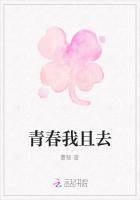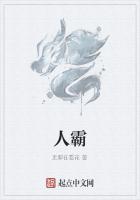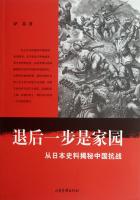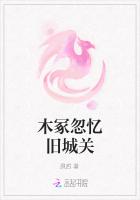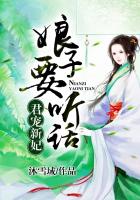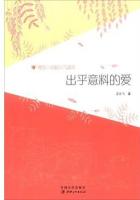玻璃瓶中的妖怪
There was once a poor woodcutter who toiled from early morning till late at night. When at last he had laid by some money he said to his boy, “You are my only child, I will spend the money which I have earned with the sweat of my browbrow n.眉毛, 额, (面部)表情 on your education, if you learn some honest trade you can support me in my old age, when my limbslimb n.肢, 翼, 分支 have grown stiffstiff adj.硬的, 僵直的, 拘谨的, 待板的, 艰难的,费劲的, 僵硬的 and I am obliged to stay at home.” Then the boy went to a high school and learned diligentlydiligently adv.勤勉地, 坚持不懈地 so that his masters praised him, and he remained there a long time. When he had worked through two classes, but was still not yet perfect in everything, the little pittancepittance n.少量, 微薄的薪俸 which the father had earned was all spent, and the boy was obliged to return home to him. “Ah,” said the father, sorrowfullysorrowfully adv.悲哀地, 忧愁地, “I can give you no more, and in these hard times I cannot earn a farthing more than will suffice forsuffice for 满足, 足够 our daily bread.” “Dear father,” answered the son, “dont trouble yourself about it, if it is Gods will, it will turn to my advantage. I shall soon accustom myself to it.” When the father wanted to go into the forest to earn money by helping to chopchop vt.剁碎, 砍, (风浪)突变 and stackstack v.堆叠 wood, the son said, “I will go with you and help you.” “Nay, my son,” said the father, “that would be hard for you. You are not accustomed to rough work, and will not be able to bear it. Besides, I have only one axe and no money left wherewithwherewith adv.用什么, 用那个, 以其 to buy another.” “Just go to the neighbor,” answered the son, “he will lend you his axe until I have earned one for myself.”
从前有个穷樵夫,他从清早干到深夜。终于,他积蓄了一些钱,便对他的儿子说:“你是我惟一的孩子,我要用我拿血汗挣来的这些钱,供你上学去,好好学点本领,等我老了,手脚不灵了,只好坐在家里,你就可以养活我。”于是,儿子便去上一所高中,学习非常努力,得到了所有老师的称赞。这样过了一些时候,他已完成两门的学业,可还没等到修完,父亲积攒的那一点钱已用光了,不得不辍学回家去。“唉,”父亲很难过地说,“我再没法供给你上学了,世道这么艰难,除维持生活外,一个小钱都剩不下来啊!”“爸爸,”儿子回答,“别伤脑筋啦!既然这是上帝的意志,到头来对我会更好些,对此我很快就习惯了。”父亲准备去林中砍点柴卖,儿子说:“我愿跟你一道去帮帮忙。”“别,孩子,”父亲说,“这对你太难了,你没习惯干重活儿,会吃不消的!再说我也只有一把斧头,没有再买一把的钱啊。”“去找邻居吧,”儿子回答,“他会把自己的斧头借给你一段时间,到时候我就可以自己买一把了。”
The father then borrowed an axe of the neighbor, and next morning at break of day they went out into the forest together. The son helped his father and was quite merry and brisk aboutbrisk about 来来去去, 行动敏捷 it. But when the sun was right over their heads, the father said, “We will rest, and have our dinner, and then we shall work twice as well.” The son took his bread in his hands, and said, “Just you rest, father, I am not tired, I will walk up and down a little in the forest, and look for birds nests.” “Oh, you fool,” said the father, “why should you want to run aboutrun about 乱跑 there? Afterwards you will be tired, and no longer able to raise your arm. Stay here, and sit down beside me.”
这样,父亲找邻居借了一把斧头,第二天天一亮,父子二人就一道进森林里去了。儿子帮父亲干起活儿来挺带劲儿。当太阳升到了头顶,父亲讲:“我们歇下来吃中饭吧,吃过了饭,又会有力气的。”儿子拿去一个面包,说:“你一个人歇着吧,爸爸,我不累,我想在林子里走一走,找几个鸟窝。”“呵,傻孩子,”父亲说,“还跑什么,待会儿累得你胳臂都抬不起来!还是留在这里,坐到我身边来好了。”
The son, however, went into the forest, ate his bread, was very merry and peered in among the green branches to see if he could discover a birds nest anywhere. So he walked to and fro until at last he came to a great dangerouslooking oak, which certainly was already many hundred years old, and which five men could not have spannedspan v.横越. He stood still and looked at it, and thought, many a bird must have built its nest in that. Then all at once it seemed to him that he heard a voice. He listened and became aware that someone was crying in a very smothered voice, “Let me out. let me out.” He looked around, but could discover nothing. Then he fancied that the voice came out of the ground. So he cried, “Where are you?” The voice answered, “I am down here amongst the roots of the oaktree. Let me out. Let me out.” The schoolboy began to loosen the earth under the tree, and search among the roots, until at last he found a glass bottle in a little hollowhollow n.洞, 窟窿, 山谷. He lifted it up and held it against the light, and then saw a creature shaped like a frog, springing up and down in it. “Let me out. Let me out.” it cried anew, and the boy thinking no evil, drew the corkcork n.软木塞, 软木, (用塞子)塞住 out of the bottle. Immediately a spirit ascendedascend v.攀登, 上升 from it, and began to grow, and grew so fast that in a very few moments he stood before the boy, a terrible fellow as big as half the tree. “Do you know,” he cried in an awful voice, “what your reward is for having let me out?” “No,” replied the boy fearlesslyfearlessly adv.勇敢地, “how should I know that?” “Then I will tell you,” cried the spirit, “I must stranglestrangle v.扼死 you for it.” “You should have told me that sooner,” said the boy, “for I should then have left you shut up, but my head shall stand fast for all you can do, more persons than one must be consultedconsult v.商量, 商议, 请教, 参考, 考虑 about that.” “More persons here, more persons there,” said the spirit. “You shall have the reward you have earned. Do you think that I was shut up there for such a long time as a favor. No, it was a punishment for me. I am the mighty Mercurius. Whoso releases me, him must I strangle.” “Slowly,” answered the boy, “not so fast. I must first know that you really were shut up in that little bottle, and that you are the right spirit. If, indeed, you can get in again, I will believe and then you may do as you will with me.” The spirit said haughtilyhaughtily adv.傲慢地, 骄傲地, “That is a very trifling feat.” Drew himself together, and made himself as small and slender as he had been at first, so that he crept through the same opening, and right through the neck of the bottle in again. Scarcelyscarcely adv.几乎不, 简直没有 was he within than the boy thrust the cork he had drawn back into the bottle, and threw it among the roots of the oakoak n.[植]橡树, 橡木 into its old place, and the spirit was deceiveddeceive v.欺骗, 行骗.






